#aquacultured
Explore tagged Tumblr posts
Text
"When Francois Beyers first pitched the concept of 3D ocean farming to the Welsh regulators, he had to sketch it on napkins.
Today the seafood farm is much more than a drawing, but if you walked along the Welsh coastal path near St David’s, all you’d see is a line of buoys. As Beyers puts it: “It’s what’s below that’s important.”
Thick tussles of lustrous seaweed suspend from the buoys, mussels cling to its furry connective ropes and dangling Chinese lantern-esque nets are filled with oysters and scallops.
“It’s like an underwater garden,” says Beyers, co-founder of the community-owned regenerative ocean farm, Câr-y-Môr. The 3-hectare site is part of a fledgling sector, one of 12 farms in the UK, which key players believe could boost ocean biodiversity, produce sustainable agricultural fertiliser and provide year-round employment in areas that have traditionally been dependent on tourism.
Created in 2020 by Beyers and six family members, including his father-in-law – an ex-shellfish farmer – the motivation is apparent in the name, which is Welsh for “for the love of the sea”. ...
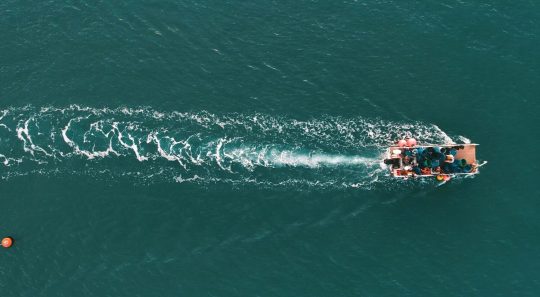
Pictured: Drone shot of Câr-y-Môr, which is on the site of abandoned mussel farms. Image: Scott Chalmers
Ocean farming comes from the technical term ‘integrated multi-trophic aquaculture’, which means a mixture of different seaweed and shellfish species growing together to mutually benefit each other. But it’s not just a way of growing food with little human input, it also creates ocean habitat.
“You’re creating a breeding ground for marine animals,” explains Beyers who adds that the site has seen more gannets diving, porpoises and seals – to name a few – since before the farm was established.
Ocean farms like Câr-y-Môr, notes Ross Brown – environmental research fellow at the University of Exeter – have substantial conservation benefits.
“Setting up a seaweed farm creates an exclusion zone so fishermen can’t trawl it,” explains Brown, who has been conducting experiments on the impacts of seaweed and shellfish farms across the UK.
Brown believes a thriving ocean farming industry could provide solutions to the UK’s fish stock, which is in “a deeply troubling state” according to a report that found half of the key populations to be overfished. “It would create stepping stones where we have safe havens for fish and other organisms,” he adds.
But UK regulators have adopted a cautious approach, note Brown and Beyers, making it difficult for businesses like Câr-y-Môr to obtain licenses. “It’s been a tough old slog,” says Beyers, whose aim is to change the legislation to make it easier for others to start ocean farms.
Despite navigating uncharted territories, the business now has 14 full-time employees, and 300 community members, of which nearly 100 have invested in the community-benefit society. For member and funding manager Tracey Gilbert-Falconer, the model brings expertise but most importantly, buy-in from the tight-knit local community.
“You need to work with the community than forcing yourself in,” she observes.
And Câr-y-Môr is poised to double its workforce in 2024 thanks to a Defra grant of £1.1 million to promote and develop the Welsh seafood industry as part of the UK Seafood Fund Infrastructure Scheme. This will go towards building a processing hub, set to be operational in April, to produce agricultural fertiliser from seaweed.
Full of mineral nutrients and phosphorous from the ocean, seaweed use in farming is nothing new, as Gilbert-Falconer notes: “Farmers in Pembrokeshire talk about their grandad going down to the sea and throwing [seaweed] on their farms.”
But as the war in Ukraine has caused the price of chemical fertiliser to soar, and the sector tries to reduce its environmental impact – of which synthetic fertiliser contributes 5% of total UK emissions – farmers and government are increasingly looking to seaweed.
The new hub will have capacity to make 65,000 litres of sustainable fertiliser annually with the potential to cover 13,000 acres of farmland.
But to feed the processing hub, generate profit and reduce their dependency on grants, the co-op needs to increase the ocean farm size from three to 13 hectares. If they obtain licences, Beyers says they should break even in 18 months.
For now, Beyers reflects on a “humbling” three years but revels in the potential uses of seaweed, from construction material to clothing.
“I haven’t seen the limit yet,” he smiles."
-via Positive.News, February 19, 2024
#wales#welsh#ocean#marine biology#aquaculture#marine life#marine animals#seaweed#sea scallops#oysters#united kingdom#uk#conservation#conservation news#overfishing#environmental news#farming#sustainable agriculture#sustainability#ocean farming#good news#hope
490 notes
·
View notes
Text

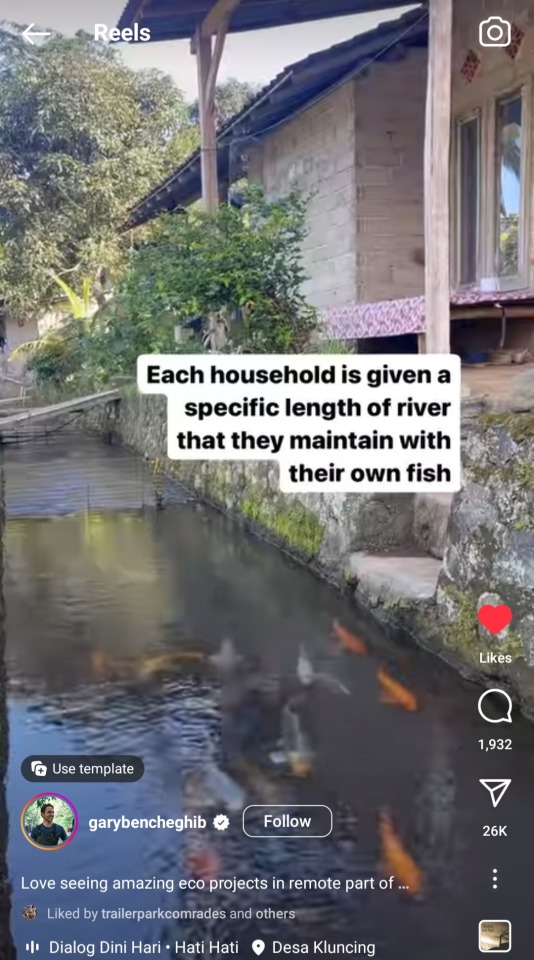

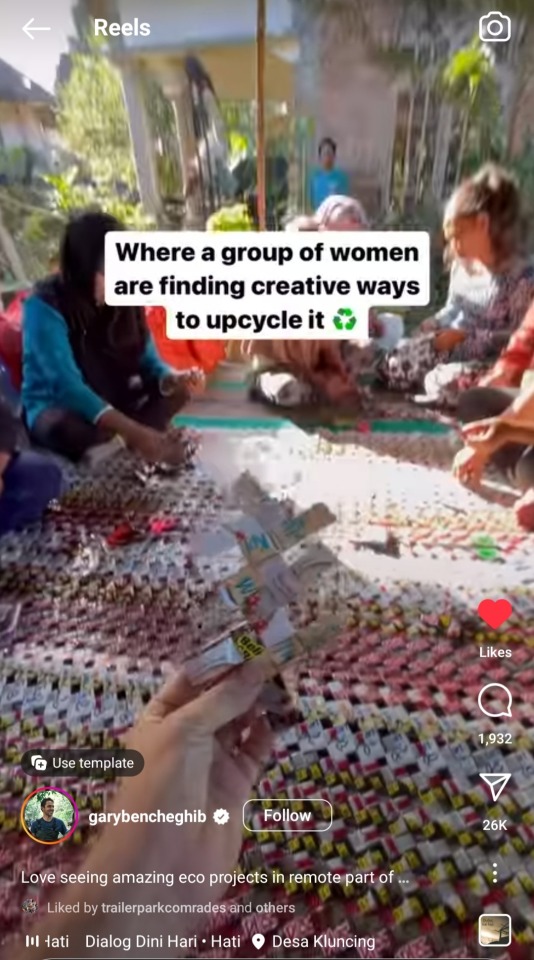

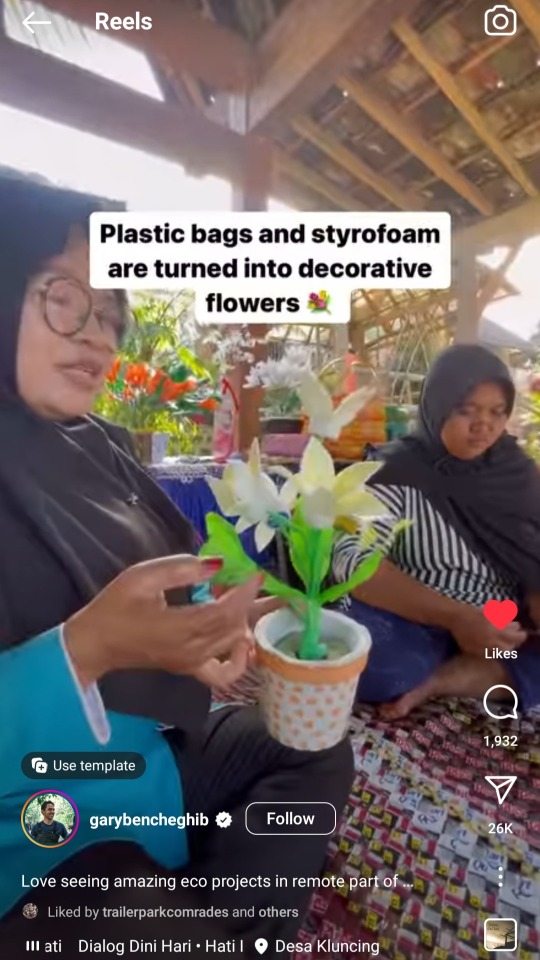

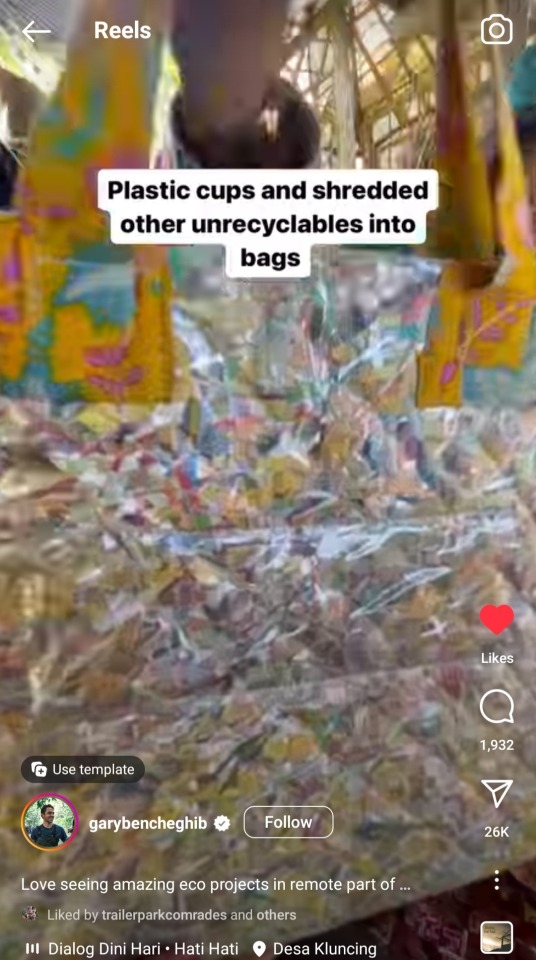

626 notes
·
View notes
Text
Farming carnivorous fish in Europe harms fishing communities in West Africa by depriving them of a resource fundamental to their nutrition and their livelihoods. Salmon are carnivorous, and farmed salmon depend on the nutrients provided through fish oil in particular, gained through grinding up smaller, wild fish. At Feedback, we have evidence that in feeding these smaller fish (sardines, sardinella, ethmalosa, etc.) to Scottish farmed salmon, major micro-nutrient losses occur. How can we allow an industry driving biodiversity loss, environmental pollution, and food insecurity to simply go on with business-as-usual?
[...]
Our research shows that in 2020, nearly 2 million tonnes of wild fish were required to produce the fish oil supplied to the Norwegian farmed salmon industry and that throughout this feeding process, one-quarter of the wild fish ground up is lost. Furthermore, the amount of fish sourced off the West African coast (FAO area 34) to supply fish oil to the Norwegian salmon farming industry in 2020 could have provided between 2.5 million and 4 million people in the region with a year’s supply of fish.
[...]
The extraction of fish from West Africa by corporations headquartered in the Global North for the benefit of mainly high-income consumers in Europe, North America and Asia has far-reaching consequences, further entrenching global inequity and food insecurity. Thus, the continuing expansion of industrial aquaculture is fuelling a type of food imperialism.
184 notes
·
View notes
Text
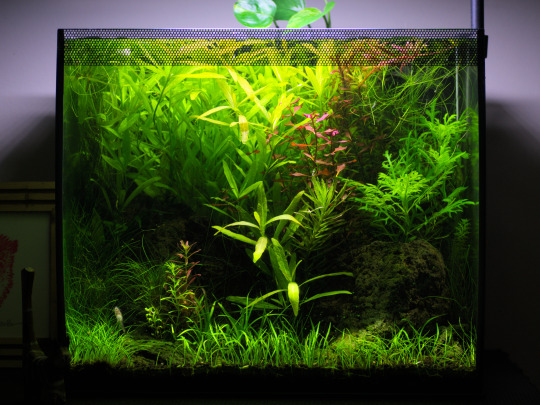
My very overgrown Fluval flex showcasing why Hygrophila polysperma is considered a noxious weed. The Sparkling Gourami absolutely love the dense growth of the stems.
#aquascape#aquarium#planted aquarium#plantblr#aquablr#nature aquarium#plants#pufferfish#planted tank#aquarium plants#gourami#sparkling gourami#gorp#gorpcore#nature#natural#aqua design amano#aquaculture#fishblr#betta fish#fish tank#banana fish#fish#aquatic#marine life
259 notes
·
View notes
Text

Requested by @tuvinn ! Love to see fish with "cats" in their name, definitely need more of that in my life
#these fishes are quite popular here!#we have an entire aquaculture industry just dedicated to this fish#as well urban legends surrounding them lmao#catfish#traditional art#sketch#illustration#artists on tumblr#art#my art#fish#fish art
31 notes
·
View notes
Text
Earth Activist Training
EAT is a permaculture design course run by Starhawk (and a rotating cast of accomplished permaculturists). It's immersive, comprehensive, and beautiful.
Not very many PDCs talk about how permaculture principles can be applied to social movements. And so few retreats have truly nourishing and excellent food. Here's the website; there are a number of educational offerings beyond the main in-person PDC. I encourage you to give it a look if you want to learn more about this amazing field we call permaculture.
https://earthactivisttraining.org/
#permaculture#starhawk#witches#Earth based withcraft#paganism#reclaiming#environment#community organizing#social permaculture#activism#activists#gardening#agriculture#aquaculture#witchblr#magic#witchcraft#ritual
15 notes
·
View notes
Text
Meet Indonesia's eFishery, first unicorn startup in global aquaculture

Founded in 2013, eFishery is an Indonesian startup that uses IoT devices and an online platform to solve problems faced by fish farmers. The company's growth story is a great example of how specialized tech companies are proving their worth in Asia.

eFishery offers an IoT system that can be installed in fish farms. The feeders are equipped with sensors. The sensors monitor fish farm conditions. The distributor uses sensors to detect external data, such as fish movement, and adjust the timing and amount of feed.
Moreover, it's connected to a solar panel, so it's self-powered. It's designed for fish farms that don't have access to electricity.
Read how a fish farming company became a unicorn AND its all solar powered!
#solarpunk#solarpunk business#solarpunk business models#solar punk#startup#farmers#indonesia#food security#aquaculture#unicorn
8 notes
·
View notes
Text
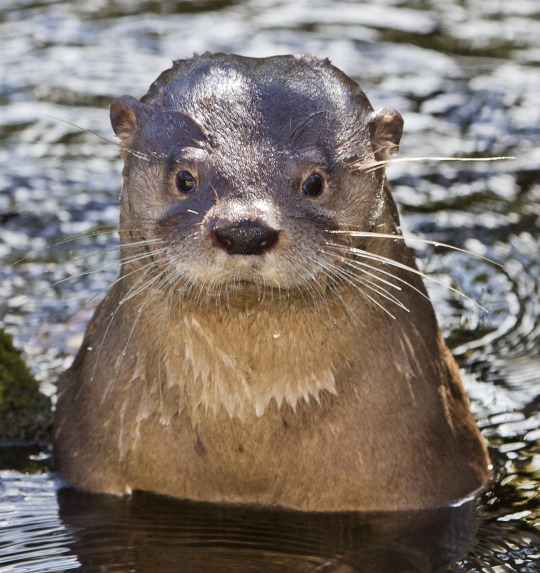
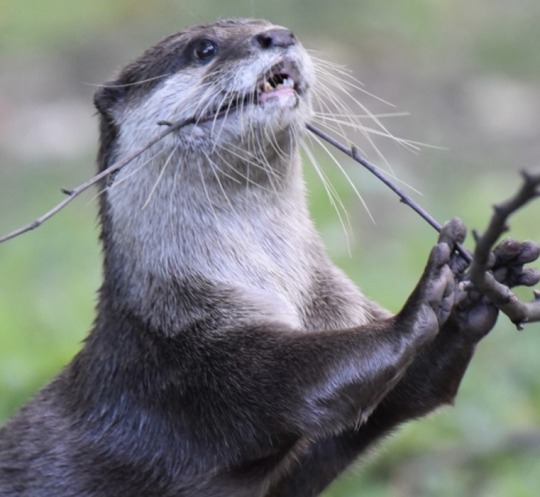
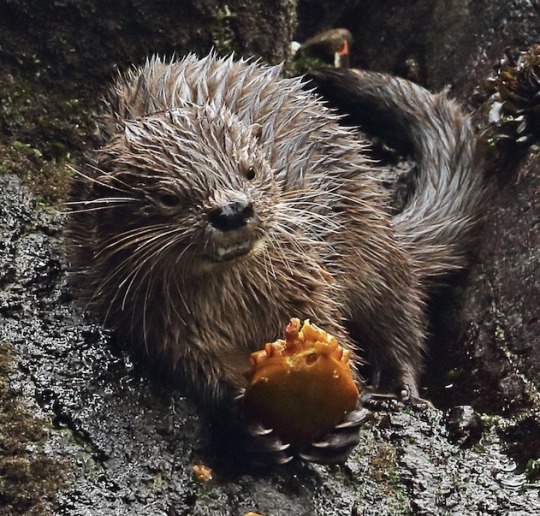

Image 1 : Southern river otter - Lontra provocax
Fun fact: Southern river otters live in freshwater with riparian vegetation. Riparian vegetation protects the water from hot summers and cold winters, shielding the waters so that the aquatic life living there won't become distressed.=(^.^)=
Image 2 : Asian small-clawed otter - Amblonyx cinereus
Fun Fact: asian small-clawed otters are the smallest of all other otter species. They also have whiskers called vibrissae that detects movement of prey in the water. ( ^w^)
Image 3 : Marine otter - Lontra Felina
Fun Fact: Marine otters are the only species with the genus Lontra that is found in marine habitats. Sometimes they even eat fruits! (╹◡╹)
September 19 , 2023(*^o^*)
@meowzerswhirlingsomewhere
#marine biology#ocean#rivers#fun facts#meow#marine science#scientific names#endangered species#aqua life#aquaculture#otters#sea otter#river otter#asian small clawed otter
77 notes
·
View notes
Text
#organic agriculture#aquaponics#aquaculture#symbiotic relationship#love#permaculture#education#entrepreneur#small business#join us#support communities#youth of america#farm
22 notes
·
View notes
Text
youtube
NEW SOLARPUNK IDEA. I don't think I've ever been in a house with a cistern, but apparently it's a thing. USE IT!
38 notes
·
View notes
Note
puts you in a fishtank with the colourful aquarium gravel at the bottom
(dw it has a nice cave to hide and a bubbly filter)

waow
#arts asks#unlabelled drawing tag#huge disclaimer i know barely anything about aquaculture i just tried to think about what i'd want if i lived in a tank#i tried to consider stuff like size + hiding/resting spaces but this is solely based on me not an actual real world fish#anyway sorry this took so long i was just going to put myself in a jpeg matching this description but i didn't like any of them#also this is my first time drawing myself with my new (relatively) hair i hope it looks good#id in alt text#arthurcomics
10 notes
·
View notes
Text

China, 2000 Nanning, Guangxi, China. 中国 広西 南寧市 西郷塘区 Photography by Michitaka Kurata
#china#guangxi#nanning#rural#suburbs#duck#aquaculture#photography#photographers on tumblr#color film#reversal film#slide film#35mm film#fujifilm#2000#中国#広西#南寧市#西郷塘区#農村風景#農村#郊外#アヒル#養殖#カラーフィルム#リバーサルフィルム#スライドフィルム#カラーポジ
89 notes
·
View notes
Text

New fish. Names????
21 notes
·
View notes
Text
environmental justice is a topic i am very very passionate about i just never bring it up until something comes up and i'm like guys i actually will kill someone if we don't start giving a fuck about deforestation
#tbt time when i wrote a paper on ocean acidification and its direct impact on fishing and aquaculture industries and by the end i was#grabbing the reader by the shoulders screaming into their faces PLEASE GIVE A FUCK ABOUT WHAT IM TELLING YOU
12 notes
·
View notes
Note
Do you have specific locations in mind when you write about Panem? For example, is 12 in a particular part of Appalachia for you, etc? I can't tell from Katharsis (which, don't worry about that, because trust me, it says way more about my geography skills than your writing skills lol) so I was curious!
Ahoy, sweet reader!!! Thank you so much for asking this, because it touches on something I have been thinking about more this year. And bear with me, I'm gonna go off a minute, and it will veer more towards Four.
First, let's look at the movie!official map.
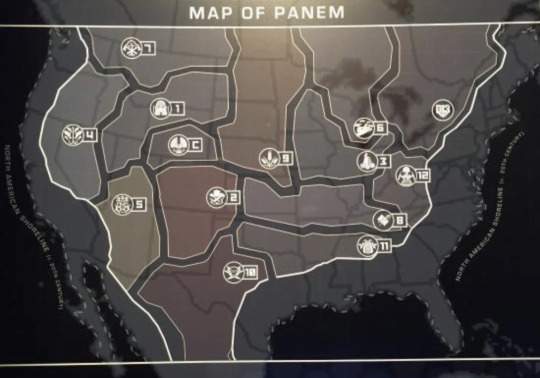
Something that has always bothered me about this is the size and proximity of the Districts. There are some, particularly Nine, Ten, and Eleven, that we can infer or were described as taking up more land. For their industries, they must. However, it is noted that most Districts' populations and economic centers are concentrated in singular towns. In those geographically larger Districts, workers may be shuttled between home and work sites, but there is a limit to how far that can stretch. Two is noted to be the odd one out with its multiple villages. So, given that we know the Districts do not actually take up this kind of space, that there are miles and miles of wilds between their borders, it is really just a display of potential ranges.
I always imagined Twelve in the northern Appalachians, a little east of this map, since I wasn't accounting for as much sea level rise. I like having Thirteen further north, nearer old Canada, to incorporate a wider range of North America, and a Twelve in the northern part of the mountains lets us have that without them being too far for the commutes in Mockingjay. In Ch. 16, I said Buttercup "trekked hundreds of miles," and to get that, I mapped West Virginia to New York. Not super precise. When she gathers herbs in Ch. 9, I did double check their current ranges and preferred growing habitats to try to be accurate. Northern creep explained by climate change. Coming up, they will eat some wild boar. Feral swine are a big nuisance in the south, and they can get up to the range depicted for Twelve. May even spread further with such a decrease in urban environments, but I'm not a terrestrial biologist. Here, the range for Twelve is smaller than the other Districts, and I don't have a more specific headcanon aside from being biased for the bit closer to Pennsylvania.
Now, being a Chicago gal, I do appreciate its inclusion at the tip of District 6. It's where the transcontinental railroad connected and has historically been the intersection of many a terrestrial trade route--and big about trains--thanks to the Great Lakes! To me, Six is there, and they still use old railway paths and the lakes for moving things, even if there isn't much in the direction the lakes lead anymore. No idea why Three would be there; I used to headcanon that as somewhere in California like Silicon Valley or wherever those people moved after it was eaten by the sea. Three should be closer to Five, which is very appropriately placed where solar panels will get a lot of action.
So, about District 4. When I first read the books, if I thought about seafood in the US, I thought about Bubba from Forrest Gump and all the glorious ways he enjoyed shrimp. This led my first thought about District 4 to the Gulf of Mexico. Later, the West coast grew on me, but Southern Four will always have a place in my heart. And that connects to my next point. Let's talk about Aquaculture!
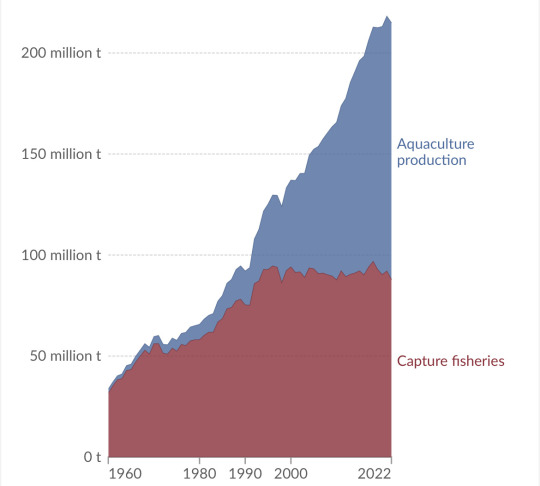
This figure represents world-wide industry and our current environment, so we must take it with a grain of salt to extrapolate to Panem. That said, I do believe that Four does a combination of wild capture and aquaculture. Wild fisheries could be completely depleted for all we know! Aquaculture is the way of sustainability, and I can go on about that for hours. BUT do you know what the top-cultured aquatic species in the US is today? Catfish!
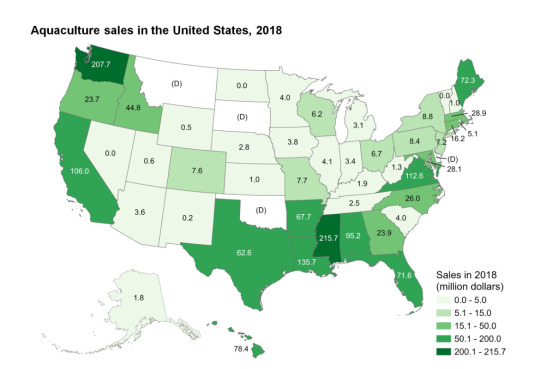
This map is shows the profit of catfish and other freshwater species like bass and tilapia in the South. If we roll with Four being on the West coast, then I will always put it in the northern part of that. Note the shade of Washington. That's salmon and trout! Salmonids and other prized seafood species are cold water animals! They also do a fair amount of salmonid aquaculture in Idaho. I do not buy a Californian District 4. Not with the way the waters are warming. There is so much salmonid aquaculture up that coast into Canada, too! And the "Yellow Death" that Four's trout hatchery scientists make a new vaccine for in Katharsis Ch. 11 is a Flavobacterium sp.
Anyway, thanks for asking!!!
3 notes
·
View notes
Text











Marseille, début janvier : une balade avec Philippe sur les îles du Frioul, dans le Parc National des Calanques.
L'île de Pomègues, avec ici le Fort de Pomègues et le Port de...Pomègues, sous le Sémaphore de..., qui abrite une ferme aquacole.
#marseille#frioul#îles du frioul#archipel du frioul#pomègues#île de pomègues#fort#fort de pomègues#ferme aquacole#aquaculture#sémaphore
4 notes
·
View notes